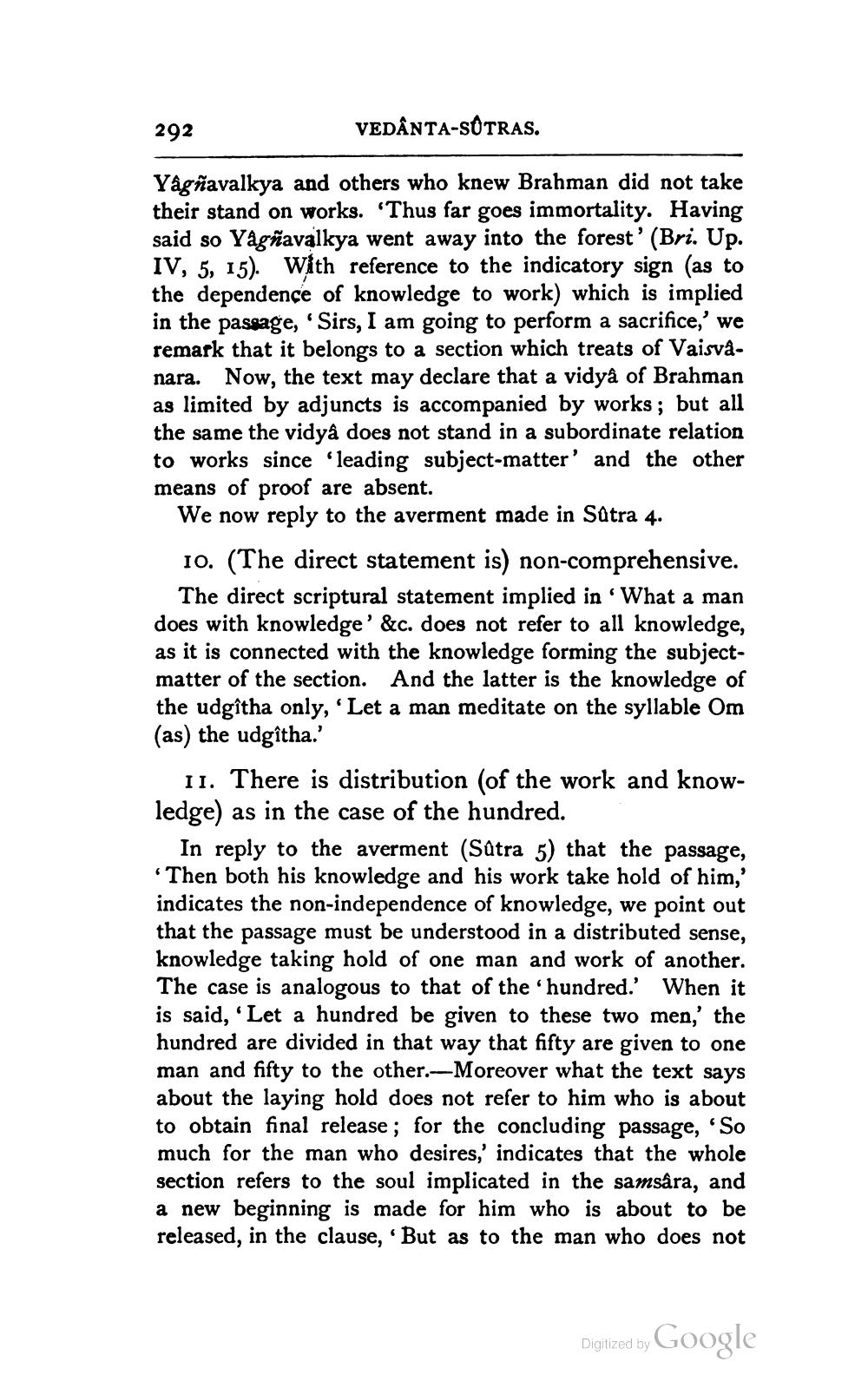________________
292
VEDÂNTA-SOTRAS.
Yågñavalkya and others who knew Brahman did not take their stand on works. "Thus far goes immortality. Having said so Yagñavalkya went away into the forest' (Bri. Up. IV, 5, 15). With reference to the indicatory sign (as to the dependence of knowledge to work) which is implied in the passage, 'Sirs, I am going to perform a sacrifice,' we remark that it belongs to a section which treats of Vaisva. nara. Now, the text may declare that a vidyå of Brahman as limited by adjuncts is accompanied by works; but all the same the vidyâ does not stand in a subordinate relation to works since 'leading subject-matter' and the other means of proof are absent. We now reply to the averment made in Sätra 4. 10. (The direct statement is) non-comprehensive.
The direct scriptural statement implied in "What a man does with knowledge' &c. does not refer to all knowledge, as it is connected with the knowledge forming the subjectmatter of the section. And the latter is the knowledge of the udgîtha only, 'Let a man meditate on the syllable Om (as) the udgîtha.'
11. There is distribution (of the work and knowledge) as in the case of the hundred.
In reply to the averment (Satra 5) that the passage, *Then both his knowledge and his work take hold of him,' indicates the non-independence of knowledge, we point out that the passage must be understood in a distributed sense, knowledge taking hold of one man and work of another. The case is analogous to that of the 'hundred. When it is said, 'Let a hundred be given to these two men,' the hundred are divided in that way that fifty are given to one man and fifty to the other.-Moreover what the text says about the laying hold does not refer to him who is about to obtain final release; for the concluding passage, So much for the man who desires,' indicates that the whole section refers to the soul implicated in the samsara, and a new beginning is made for him who is about to be released, in the clause, 'But as to the man who does not
Digitized by
Digitized by Google




